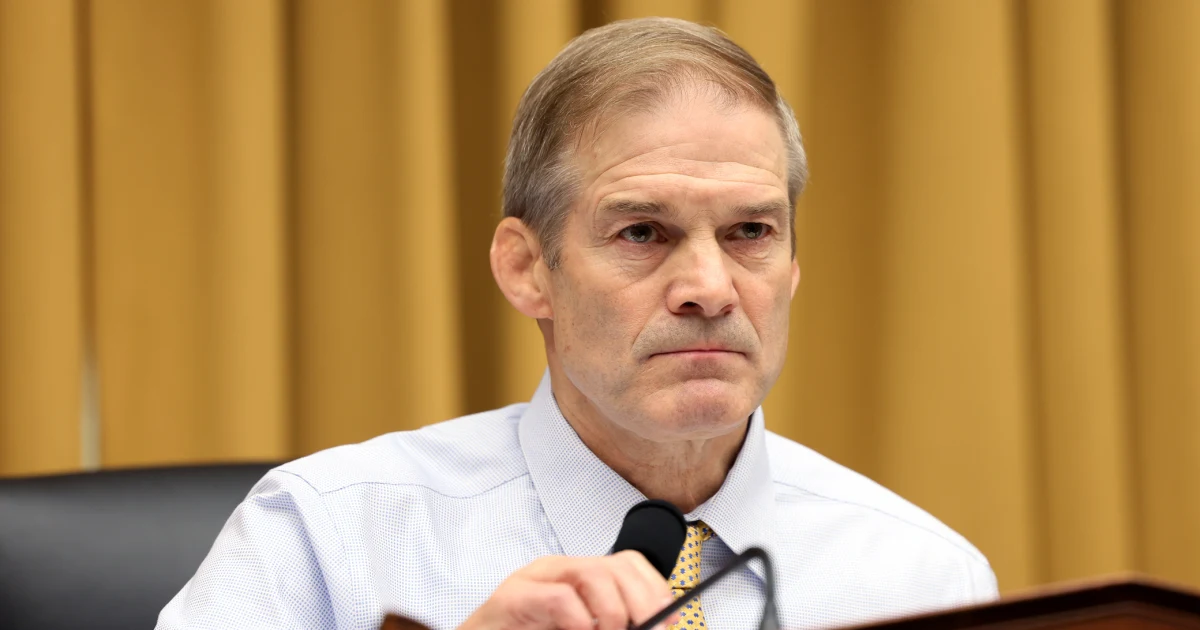Republican House Judiciary Committee Chair Jim Jordan (R-Ohio) has recently found himself at the center of a heated political dispute. The clash involves a Democratic strategist, Mike Nellis, who has openly rejected Jordan’s subpoena regarding an investigation into the relationship between the judiciary and political organizations. This ongoing battle raises important questions about the role of subpoenas in the legislative process and the boundaries of political influence, offering a broader look at how American politics functions in today’s polarized climate.
Discover more articles on USA Elects
The Subpoena: What’s Really Going On?
The subpoena issued by Jim Jordan targets Authentic Campaigns, a company founded by Democratic strategist Mike Nellis. Authentic Campaigns focuses on digital strategies for political campaigns and was reportedly connected to the daughter of Judge Juan Merchan, who presided over former President Donald Trump’s hush money trial. The House Judiciary Committee led by Jordan is seeking more information on this potential connection, implying that there may be a conflict of interest due to the judge’s familial ties to Authentic Campaigns.
Jordan’s central argument is that this connection could have influenced Judge Merchan’s impartiality in Trump’s legal proceedings. According to Jordan, the involvement of Nellis and his company may have led to financial or political advantages for Trump’s adversaries. However, Nellis has vehemently denied these claims, calling the subpoena “unconstitutional” and asserting that it serves no legitimate legislative purpose.
Democratic Pushback: Mike Nellis Takes a Stand
In a public response to the subpoena, Mike Nellis posted on X (formerly Twitter) that he is refusing to comply with Jordan’s request. He characterized the subpoena as politically motivated and lacking any legitimate basis. His argument, detailed in a letter from his legal team, challenges the constitutionality of the subpoena and asserts that Authentic Campaigns has no connection to Trump’s legal case.
Nellis’ legal team emphasized that the company has had no involvement in former President Trump’s trial and that the House Judiciary Committee’s claims are baseless. “Authentic’s work is in no way connected to former President Trump’s legal proceedings in New York,” the letter reads. It goes on to argue that Jordan’s repeated insinuations about Judge Merchan’s impartiality are unfounded and dangerous, further fueling political tensions.
Subpoenas in the Political Arena: A Legislative Tool or Political Weapon?
This case highlights a larger issue in American politics: the increasing use of subpoenas as political weapons. While subpoenas are meant to serve as tools for gathering information in the interest of justice and legislation, they can sometimes be wielded as instruments for political gain. Jim Jordan’s critics argue that his actions reflect a broader trend of political overreach, using legal mechanisms to score points in a deeply divided political landscape.
From a legal perspective, the key issue revolves around whether the subpoena serves a legitimate legislative purpose or is merely an attempt to gain leverage over political opponents. Nellis’ legal team has described Jordan’s actions as an overreach of power, claiming that the subpoena lacks legal validity.
The Broader Impact on American Politics
The controversy surrounding Jim Jordan’s subpoena is more than just a legal dispute—it underscores the deep political divide in the United States. It reflects how both sides of the political aisle are willing to challenge each other through aggressive legal tactics, often leading to heated public debates.
For Jordan and his supporters, the subpoena represents an effort to ensure transparency and accountability, especially when it comes to possible conflicts of interest in high-profile legal cases involving former presidents. For Democrats like Nellis, it’s seen as an attack on political operatives and a misuse of government power.
Looking Forward: What This Means for Future Investigations
As political tensions rise, the role of subpoenas and investigations will likely become even more contentious. Jim Jordan’s push for accountability in this case could set a precedent for future investigations into political figures and their connections to the judiciary.
However, the outcome of this dispute may hinge on whether the courts or legislative bodies find Jordan’s subpoena to be a legitimate use of power or a politically motivated attack. With both sides firmly entrenched in their positions, the standoff is far from over.
| Key Figures | Key Points |
|---|---|
| Jim Jordan (R-Ohio) | Chair of the House Judiciary Committee |
| Mike Nellis | Democratic strategist, CEO of Authentic Campaigns |
| Judge Juan Merchan | Presided over Donald Trump’s hush money trial |
| Authentic Campaigns | Target of the subpoena, denied involvement in Trump case |
Final Thoughts
This case between Jim Jordan and Mike Nellis encapsulates the complexities of political subpoenas and their far-reaching impact on public trust in governmental institutions. Whether Jordan’s actions will be seen as a legitimate attempt at transparency or as a political overreach remains to be seen. Regardless of the outcome, this case has already intensified the debate about how political influence and legal actions intersect in American governance.
For readers in the USA, it’s important to keep an eye on developments like these, as they will shape the future of political accountability and transparency in a time of unprecedented polarization.

